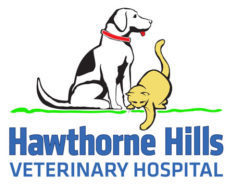Educational Articles
-
Pyelonephritis is an upper urinary tract infection involving the kidneys and ureters. Many cats have no clinical signs when they have pyelonephritis, although they may have signs of lower urinary tract disease. Pyelonephritis is usually caused by a bacterial infection that moves up the urinary tract from the bladder to the kidneys. Cats with sudden pyelonephritis do well and return to normal health unless concurrent complications exist.
-
Pyoderma is a bacterial skin infection that can affect all areas of the skin, including skin folds, often seen as red, pus-filled pustules. Treatment may require oral or topical medications and it is always a good idea to practice good hygiene. Pyoderma carries a good prognosis for recovery but recurring or chronic cases may require longer treatment and additional testing to determine an underlying cause.
-
Pyometra is a serious and life-threatening infection in the uterus, occurring in female cats who have not been spayed. The condition must be treated quickly and aggressively. The preferred treatment is to surgically remove the uterus and ovaries by performing an ovariohysterectomy. There is a medical approach to treating pyometra, although the success rate is highly variable and not without considerable risk and potential long-term complications.
-
Pyometra is a serious and life-threatening infection in the uterus, occurring in female dogs who have not been spayed. The condition must be treated quickly and aggressively. The preferred treatment is to surgically remove the uterus and ovaries by performing an ovariohysterectomy. There is a medical approach to treating pyometra, although the success rate is highly variable and not without considerable risk and potential long-term complications.
-
Pyothorax is the presence of inflammatory fluid or pus within the chest cavity, which is the area between the lungs and the inner walls of the ribs. Signs of pyothorax include rapid, shallow, open-mouthed breathing that may be painful, depression, lethargy, decreased appetite. Clinical examination by a veterinarian, particularly listening to the chest with a stethoscope, may indicate fluid in the chest.
-
Pyothorax occurs when pus or inflammatory fluids collect in the space around the lungs causing fever, anorexia, lethargy, and difficulty breathing. It is diagnosed through history, physical exam, radiographs, and thoracocentesis. Treatment with oral antibiotics is essential and may involve repeated thoracocentesis or the placement of a chest drain.
-
Pyrantel pamoate is given by mouth and is used on and off label to treat intestinal parasites in many species. Give as directed. Side effects are uncommon but may include stomach upset, such as vomiting or diarrhea. Do not use in pets that are allergic to it. If a negative reaction occurs, call your veterinarian.
-
A herder through and through, the Pyr Shep is an energetic dog that needs a job. They become very attached to their owners, with a keen sense of their mood.
-
Pythiosis is a waterborne infection that can infect the GI tract or skin of dogs. It can cause extreme weight loss, vomiting, diarrhea or skin lesions such as ulcerating nodules and draining tracts. This disease is more common in southern regions. Treatment involves surgical removal of all affected material if possible, including limb amputation if indicated. Different antifungal therapies have shown some efficacy and need to be continued long-term. Prognosis for resolution of pythiosis is guarded to poor.
-
Radiation is a type of energy produced naturally by the sun, earth, and rocks and artificially by machines. Although several types of tumors can be treated with radiation therapy alone (e.g., nasal tumors, brain tumors, and certain types of lymphoma), radiation therapy is most commonly used to destroy or limit the growth of cancer cells left behind (i.e., microscopic disease) after a tumor has been surgically removed. Side effects depend on the type and location of the tumor and its surrounding tissues.


 6512 12th Ave NE
6512 12th Ave NE
